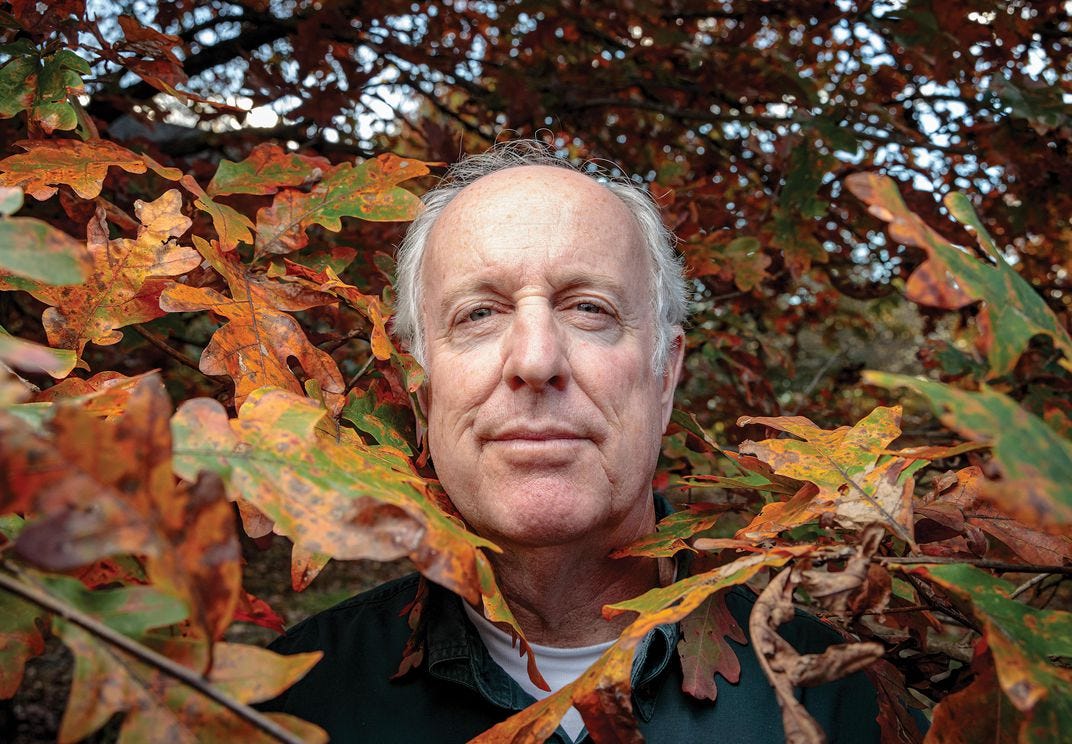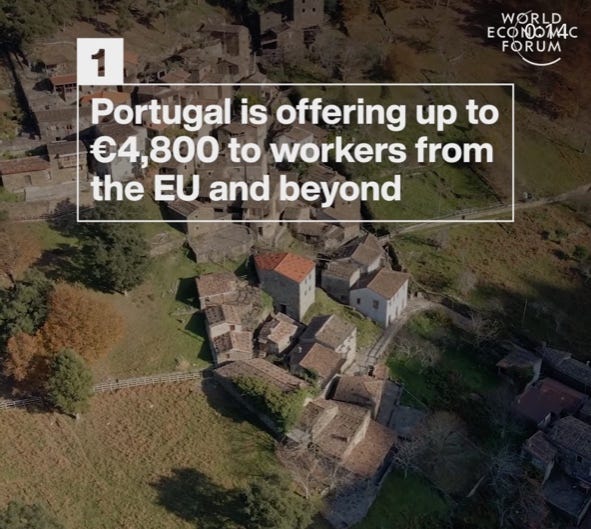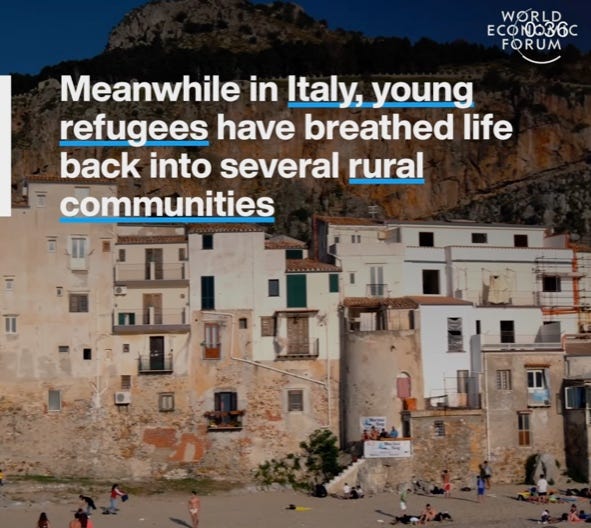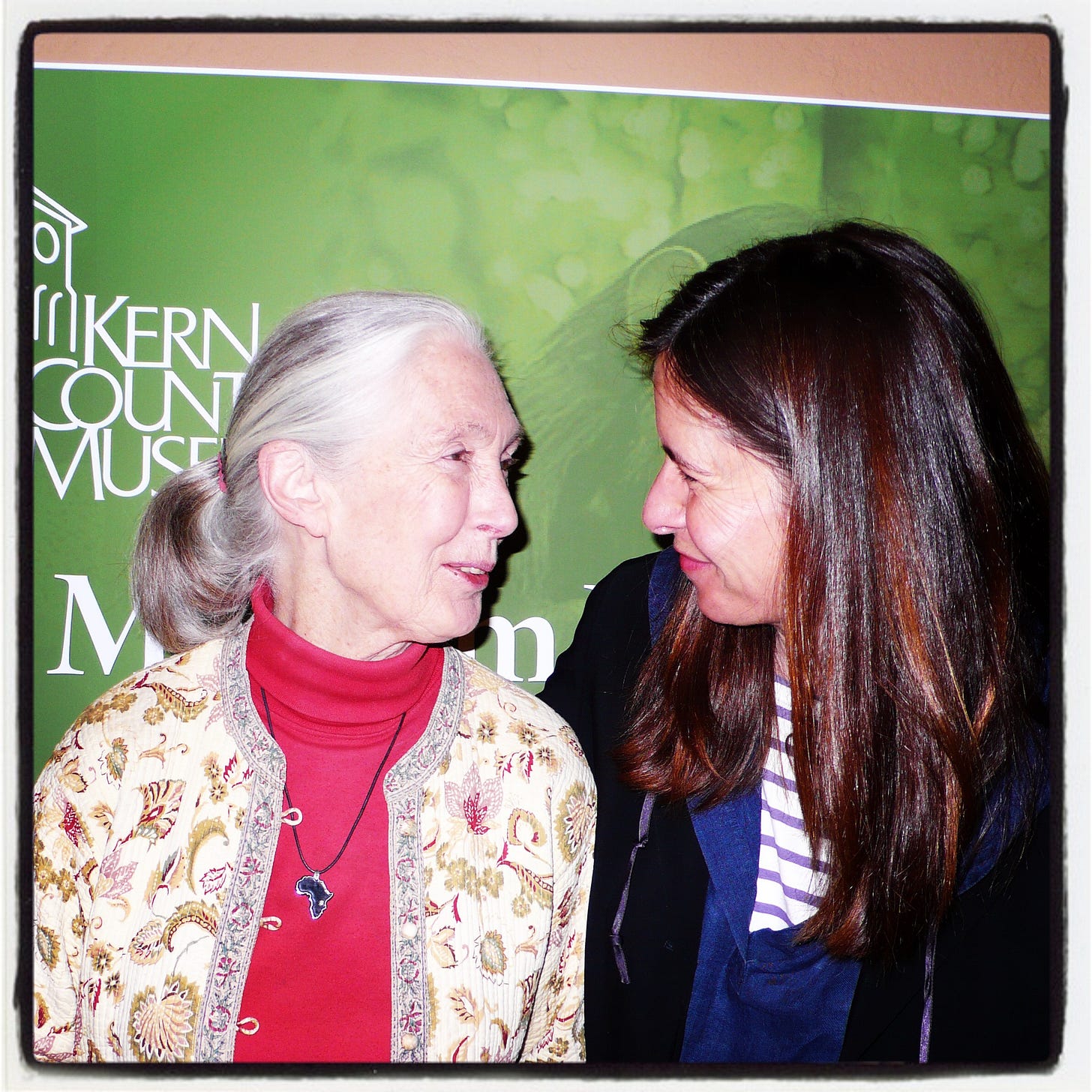Newsletter #26
Study nature, love nature, stay close to nature. It will never fail you. ~ Frank Lloyd Wright
Hello Friends!
Welcome to all new subscribers and a special thank you to all paid subscribers. I recently read that people who had a strong appreciation for moments of beauty were more likely to feel that their existence was meaningful. Even just watching a video of Earth’s most glorious natural features boosted people’s sense of purpose. We should slow down, let life surprise us, and embrace the significance in the everyday.
In this issue, everything is meaningful from the piece about Hair Care; the wonderful nature loving Gamechanger; where Remote Work is being encouraged; a charming story about an abandoned house in Italy and a heartfelt holiday message I received from Dr. Jane Goodall. Enjoy!
#1- Hair Care
Did you know that hundreds of products sold in the U.S. include ingredients that are banned in beauty products in Japan, Canada, and the European Union. Did you know that cosmetic companies do not need government review or approval to use raw materials in their product unless the ingredients are color additives or one of a few prohibited substances.
Even more astounding is that companies are legally permitted to leave certain chemicals off their labels. One more thing you should know is that just because a beauty product, like shampoo is sold at a supermarket, or drugstore, doesn’t mean it’s safe. The truth is that the Food and Drug administration (FDA) has no authority to require safety testing on these products. Nor can it mandate recalls of beauty products that are harmful. In fact, the manufacturers themselves are not required to report cosmetics-related injuries to the FDA.
To fill the gap, the EWG launched Skin Deep, in 2004, to educate the public about the ingredients in their cosmetics and personal care products. Skin Deep makes it easier for shoppers to understand potential hazards and health concerns related to ingredients in cosmetics and personal care products.
When buying a shampoo or conditioner, I choose ones that are free of parabens and sulfates, which is an easy way to reduce my exposure to harmful chemicals. Hair is just as absorbent as your skin, so watch out for shampoos and conditioners, and other hair products that contain petroleum products, coal tar, formaldehyde, or synthetic fragrances.
When I was younger, nobody thought about the issues of harmful chemicals in products. Instead, we bought and used whatever was in stores. Here I am at 19, buying and using who knows what that looked or smelled nice at the drugstore!
Today, even though some of us may feel disillusioned by the marketplace, we are informed as never before and can encourage positive change by supporting the many wonderful toxin-free brands now available, and make them the norm rather than the exception.
My favorite trusted resource for all things to do with beauty products and more: EWG
Source: my book Lola Lots of Love Always, (chapter 3, pages 45-49)
#2 Gamechanger: Doug Tallamy
Douglas Tallamy is an American entomologist, ecologist and conservationist. He is a professor in the Department of Entomology and Wildlife Ecology at the University of Delaware, and has written and co-authored several books, as well as many papers and has overseen rigorous field-studies that examine native versus introduced flora as caterpillar hosts and chickadee habitat.
Tallamy advocates for home gardens and landscaping that bridge the gaps between parks and preserves in providing habitat for native species, has spoken on the connections between plants and insects and how those relations are important to birds, and has called for smaller lawns.
The following is some information from Doug Tallamy:
- Less than 5 percent of the United States is close to its original ecological state
- North America lost 3 Billion birds in the last 50 years
- Some say we are experiencing an insect apocalypse
- Insects play a crucial role in the ecosystem and are essential to human life
- Caterpillars transform more energy from plants to animals than any other group of insects
- Seventy-eight percent of U.S. land is privately owned
- Whether you have many acres or a small plot of land, you can make a difference with your choice of plants
- Incorporate native plant species into your garden to support caterpillars and other insects
Four things Doug Tallamy recommends:
1-Shrink your lawn, replacing it with native plants
2- Include Keystone Plants in your landscape
3- Reduce outdoor lighting
4- Stop using pesticides and make a hospitable environment for caterpillar survival
Doug Tallamy is also a big fan of white oaks (Quercus alba) because they are among the most valuable of native trees we can plant. The white oak provides a habitat and food for countless species of wildlife and is the best tree to plant to attract butterflies and moths, supporting over 900 species. If you want to support pollinators and attract birds, planting white oaks is the way to ensure that will happen. In addition to supporting biodiversity, white oaks are great at sequestering and pumping carbon into the soil, which we need. They’re also wonderful at managing our watershed, because they have such big canopies and big root systems.
Read Doug’s latest book The Nature of Oaks and a favorite of mine, Nature’s Best Hope
Watch Doug’s video discussing pollinators and native plants:
Read Doug Tallamy’s interview on awaytogarden
#3 Remote Work
-building a strong and healthy community-
This is a story I’ve been following, as I am interested in how to build resilient community: according the World Economic Forum, remote work is predicted to transform the future economy and there are new strategies in the works to revitalize rural communities and boost local economies, such as in Portugal, Ireland, New South Wales and Italy.
Remote work will transform local economies, as more companies revise their policies to accommodate employees who have permanently shifted to working remotely, and more workers move to places they’ve always wanted to live but couldn’t.
There is demand out there: people want to move to lower-cost places, they want to move to less dense places, they want to move farther away.
In order to revitalize a community, incentives need to be offered to those who can help to build a good infrastructure, from schools to healthcare and services. I’ve read that medical access is one of the bigger issues because when medical workers move to a rural (very isolated) location, they become over-worked as there are so few of them.
#4 An Abandoned House in Italy
-living in tune with the natural rhythms of nature-
Luca Ventrella was living in a dense city in Northern Italy when, on one of his weekend hikes in the Alps, he stumbled upon a rundown stone cabin. He bought it for 8,000 euros. Since the roof and walls were intact, he could move in and begin to turn it into a home. The dry stone cabin was originally built as a shepherd’s hut, "baita," where shepherds would spend months at a time here while their flock grazed during the summer months. Given the home’s distance from the electrical grid, solar power was the only option. Ventrella first put in a simple system and later upgraded to something more powerful with lithium batteries and very potent and reliable inverters. Because power tools are expensive, but mostly because Ventrella likes the feel of hand tools, he built an outdoor shower, toilet, furniture, and stairs out of hand-hewn wood from the surrounding forests. “Hand tools are cheap. They always work. And they are very rewarding to use.” His water comes from a stream located several hundred meters from the home. The pipeline was installed back when the mountain pasture was used for grazing, and the water was used for the animals.
The home is very rustic and minimal, both an aesthetic choice of Ventrella’s, but also because any building material had to be carried on foot up the mountain path. The isolation that the cabin affords allows Ventrella time to find a new rhythm, one more attuned to the cycles of nature. When not building, he spends his time here beekeeping (a potential income source), mushroom picking, and cooking elaborate meals. "Time changes here completely. I adapt to the rhythms of nature. I go to sleep earlier. I wake up earlier. The day can be very short when I work or expand when I also relax because the distractions are few."
#5 Dr. Jane Goodall
-a message of hope for 2023-
Dear Priscilla,
It is hard to believe another year has gone by. And a year when things have not been going well for the world. This terrible war, the suffering of women (and others) in Afghanistan an iran, the clamp down on freedom in China – including poor HK and Taiwan. Thinking of other conflicts and the damage inflicted by climate change.
But at the same time, we have a lot to celebrate. The difference made by global JGIs collectively and other NGOs, and the massive difference made by young people in many countries. I am especially so proud of our youth in the 67 R&S countries. And our expanding reach into indigenous communities in Australia, north and south America and Africa. Taiwan also.
There is greater awareness of the need for action. COP 15 in Montreal went better than expected Ukraine has held out and is getting more help.
So let us hope and pray that 2023 will be a turning point, and be a better year for people, animal and the environment.
I will raise a glass for you over Christmas and on New Year’s Eve.
And perhaps we shall meet again before too long.
Warm regards
Jane
Support Dr. Jane Goodall’s work here
Wishing you a wonderful remainder of the month! Follow me on Instagram @priscillawoolworth to get all my news and please share my newsletter with loved ones and help me grow my audience!
All the best,
Priscilla













